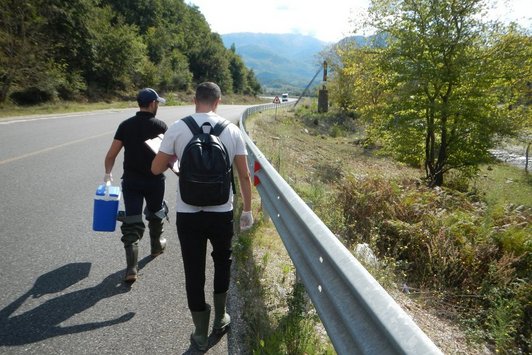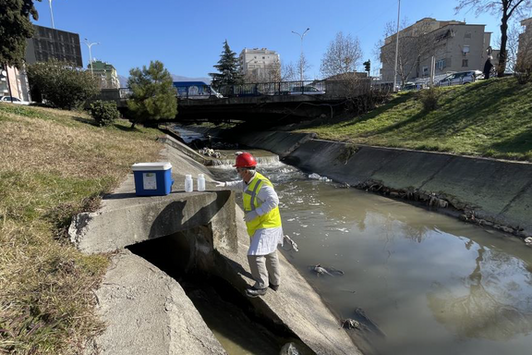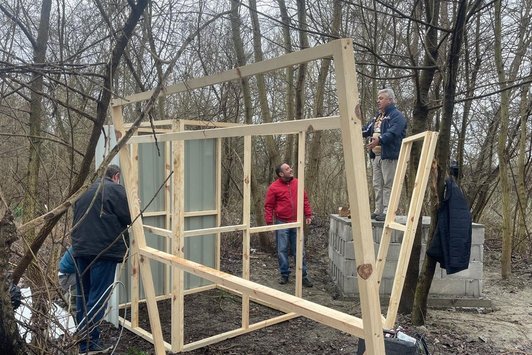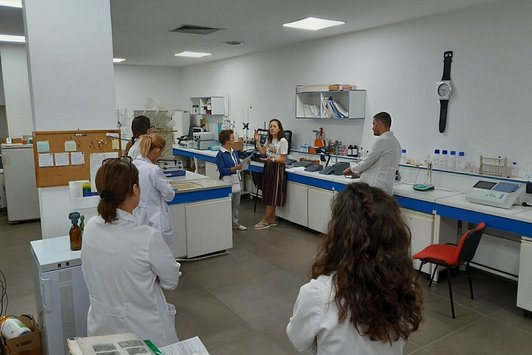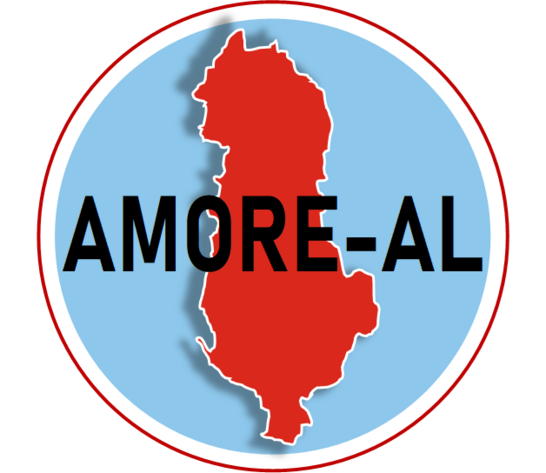Assessment of Pollutant Emissions to support River Basin Management in Albania according to the EU Water Framework Directive
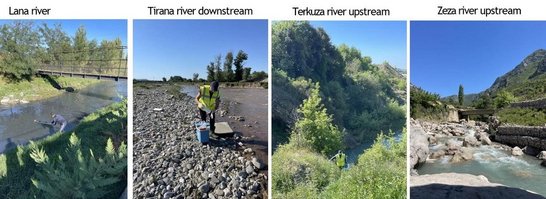
Project coordinator: Thomas Ertl
Coordinating institution: University of Natural Resources and Life Sciences, Vienna
Partner institutions: Vienna University of Technology (TU Wien), Agricultural University of Tirana
Partner country: Albania
Project duration: 1 February 2024 – 31 January 2027
Budget: EUR 381.717,13
Project Overview
Albania is a country rich in water resources. Safeguarding these water resources is of paramount importance for economic and social development of the country. Albania has the status of a candidate country for the European Union (EU), and as such it has adapted the water legislation framework to that of the EU. In this context river basin management plans (RBMP) are used to achieve a holistic management of surface waters according to the EU Water Framework Directive. However, Albania has a significant need for data as a basis for RBMPs, especially the data regarding the pollutant emissions and pathways from the river basins. The Amore-AL project aims at filling these gaps for pollutant emissions by establishing an appropriate monitoring strategy coupled with modelling of pollutant pathways. Through this, the project aims at supporting Albanian institutions with their need for basic tools to improve river basins management plans. Amore-AL is in line with the ADC country strategies for Albania, specifically “Managing water resources in a sustainable way”.
In this project the development of a tool to assess the nutrient and pollution emissions at river basin scale is planned. The Modelling of Regionalized Emissions (MoRE) tool will be adapted and further developed for Mediterranean climatic and social conditions. The point and diffuse emission pathways for Ishmi river catchment, known as the most polluted in Europe, will be investigated. Each of the possible pollutant pathways will be investigated separately and the pollution load will be quantified. The focus will be set on demonstrating the applicability of the tool for this river basin with the aim of transferring the model to other river basins in Albania and in the neighboring countries. The model will be used as a decision support system from the responsible authorities to improve the overall water quality of the river and to plan the required measures for reducing the pollutant emissions in the surface waters. Due to its multidimensionality, the project can provide a valuable data base for setting targeted measures to improve the water quality of Ishmi river. Initially, monitoring activities are planned for determining the pollution degree. Secondly, extensive modeling will be performed from Austrian and Albanian researchers in order to define the pollutant sources and quantify the pathways of specific substance fluxes. Finally, the results will be validated by measuring the overall pollution flux at the catchments outlet with the aim of improving the model accuracy.
The final goal of this project is not only to develop a tool for identifying pollutant emissions and suitable mitigation measures for one specific Albanian river basin, but to widen and facilitate the applicability to other river basins in Albania and neighboring countries. In order to assure the further development and application of the model, capacity building and knowledge transfer will be a focal point of this project. During the three years of project duration, several workshops, conferences, and training activities are foreseen for the Albanian scientists and water resources specialists. These workshops and the additional activities planned in the project for the development of MoRE will strengthen the scientific capacities in the Albanian water sector. In order to promote social inclusion and gender equality also activities regarding schoolchildren and workshops with the inhabitants of the areas affected from water quality deterioration are planned.
Reporting
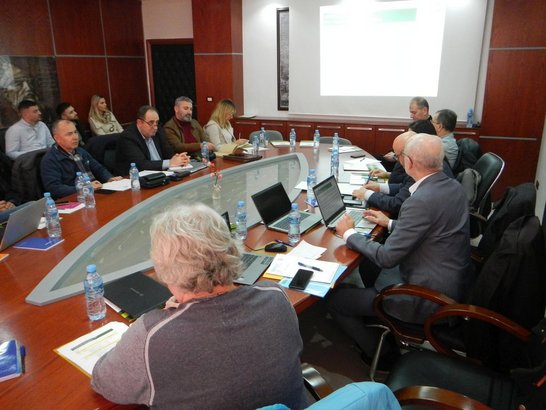
Assessment of Pollutant Emissions to support River Basin Management in Albania | Report on the 1st project year | (February 2024 - January 2025)
One month after the start of the AMORE-AL project, the kick-off meeting with all project partners was held in Tirana/Albania. The kick-off meeting and the River Basin Management (RBM) workshop was organized together with colleagues from the EU4Rivers project. Thirty-five participants from the organizing institutes and relevant stakeholders attended this event. The RBM-workshop was continued next day at the Agricultural University of Tirana. It was attended by fifteen participants from the project team as well as by some invited stakeholders.
To steer the project, a Project Management Board was implemented to facilitate communication between the project partners, monitor project progress and make decisions for a successful project. The Project Management Board consist of the responsible Work Package (WP) leaders, one representative of the WP leader and the coordinator. Several e-mail lists have been set up so that all project members involved in the respective work process can be contacted very easily. Filesharing was implemented using servers at BOKU (BOKUdrive) and TU Wien (owncloud). These servers are freely accessible to the entire project team. All supplementary documents required for the project (administrative and implementation) can also be found on the servers.
During the first year of project implementation, several online meetings were carried out for the different work packages and for the Project Management Board. The team tried to take account of the current consequences of climate change through targeted and, above all, fewer flights.
During the first year of project implementation, it became apparent that the lack of accessible and high-quality data, especially data characterizing the hydrological conditions (precipitation, river discharge) and sediment transport are challenging the MoRE model implementation in WP3. As MoRE is a data driven tool, data of adequate quality are needed to set up the model. Additional effort was and is required to obtain a minimal set of input data.
The WP2 focuses on generating data for input into the MoRE model and validating the model results. Therefore, coordinating with project members, a monitoring strategy for the Ishmi River Basin was developed and implemented. The monitoring strategy consisted of determining the sampling locations, the method of sample collection, and the time intervals for sampling.
Access to the MoRE model was granted to the partners from AUT by providing a VPN connection to the TU Wien network and setting up user accounts in the model. First data sets (analytical units, land use/land cover, topographical catchment characteristics, population data, meteorological records, hydrological data, soil classification dataset) were imported into the model.
KIT is helping to implement the MoRE-model on the TU Wien server as a contribution to WP3. In addition, KIT provides support in WP2 and WP4.
The next activities and plans for the upcoming reporting period include the setup and adaptation of the MoRE model for Albania, with a focus on data collection and validation. Monitoring activities will continue, particularly for water quality and pollution sources, to improve the accuracy of model inputs and calibration. Workshops and training sessions will also be conducted to enhance capacity building among local stakeholders.

